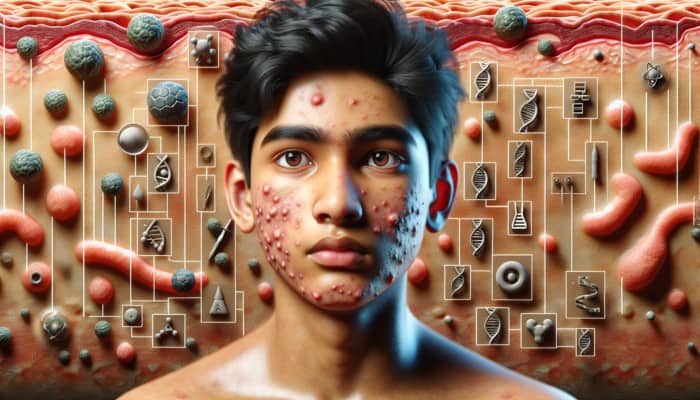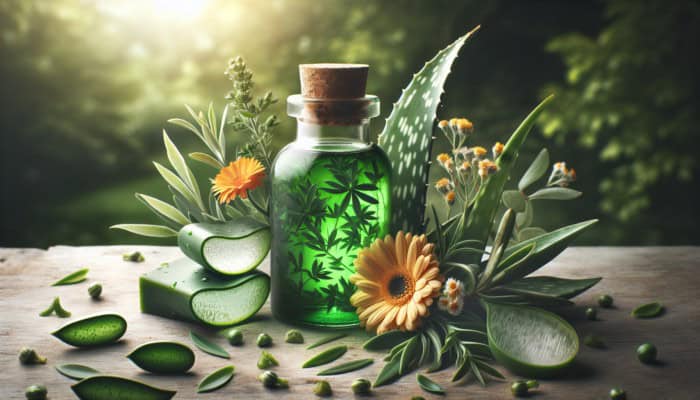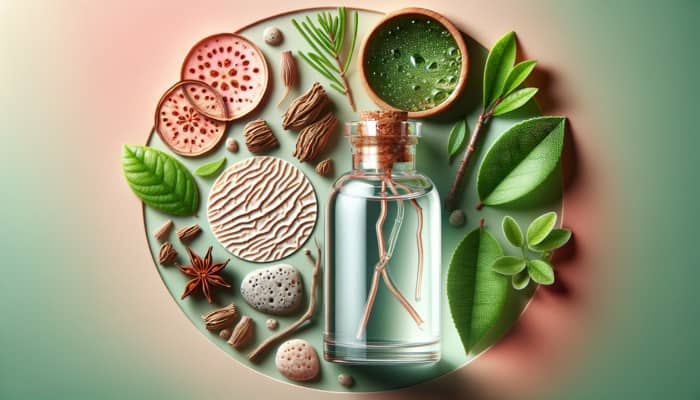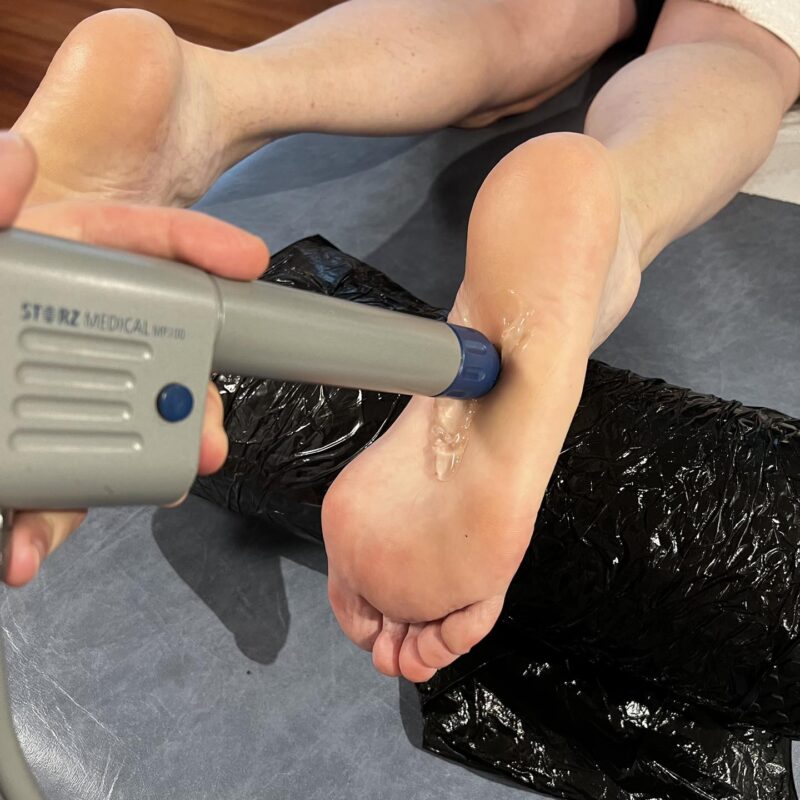Effective Herbal Solutions for Managing Teen Acne
Recently, there has been a notable surge in interest in herbal remedies for teen acne. Unlike many conventional treatments that can be harsh on the skin, these natural alternatives tend to be gentler and carry a lower risk of side effects. Many teenagers, along with their parents, are increasingly seeking holistic solutions that not only tackle the symptoms of acne but also nurture and support overall skin health. Herbal remedies draw upon the benefits of nature, providing an array of antioxidants, anti-inflammatory compounds, and skin-repairing elements.
Teenagers often face challenging skin conditions and acne, which can significantly affect their self-esteem and confidence. It's essential to grasp the various underlying factors contributing to acne development, as this knowledge is vital for implementing effective treatments. The causes of acne can be diverse and frequently linked to hormonal changes associated with puberty, genetic predispositions, and lifestyle factors such as diet and stress levels. As hormonal changes occur during adolescence, the sebaceous glands can become overly active, increasing oil production, clogged pores, and acne breakouts.
While exploring new treatments, safety must always be prioritized. Conducting a patch test before applying any herbal remedy to the entire face is essential, as allergic reactions can occur unexpectedly. It is also advisable to consult with a dermatologist before initiating any new treatment, especially for individuals with sensitive or pre-existing skin conditions. This precaution ensures that the selected remedies are appropriate and safe for the individual's unique skin type.
Exploring the Complex Causes and Triggers of Acne

Acne is a complex skin condition that can manifest differently across individuals. A range of factors contributes to the onset of acne, with hormonal fluctuations during the teenage years being a primary catalyst. These hormonal shifts can lead to heightened oil production, which clogs pores and creates an optimal environment for acne to develop when combined with dead skin cells. Genetic factors also play a crucial role; teenagers with a family history of acne may find themselves more susceptible to experiencing breakouts.
Furthermore, various lifestyle choices can aggravate acne. Diets rich in processed foods and sugars can provoke inflammation, while stress can induce hormonal imbalances that exacerbate acne symptoms. In addition, using cosmetics or skincare products containing harsh chemicals may irritate the skin, leading to further breakouts. Understanding these underlying causes is vital for both parents and teenagers who aim to manage acne effectively through herbal remedies for teen acne.
Uncovering the Advantages of Herbal Remedies for Acne
One of the most compelling benefits of utilizing herbal remedies for teen acne is their natural composition. Many teenagers and their families are growing increasingly cautious about products laden with chemicals, opting instead for gentler, plant-based alternatives. Herbal remedies typically contain fewer synthetic ingredients, minimizing the risk of adverse reactions. Additionally, these remedies can offer nourishing benefits that target existing acne and enhance overall skin health.
Herbal solutions often contain antioxidants, which can neutralize free radicals and mitigate inflammation. Extracts like green tea are renowned for their potent anti-inflammatory properties, making them practical for calming irritated skin. Moreover, herbal remedies can heal skin, reduce acne scars, and promote a more even complexion.
Essential Safety Measures and Precautions for Herbal Treatments
While herbal remedies can offer numerous benefits, it is crucial to approach their usage with care. Not all natural ingredients are suitable for every skin type, making it imperative to conduct a patch test. This test involves applying a small quantity of the product to a discreet skin area, allowing individuals to check for adverse reactions before applying it to the face.
Additionally, seeking advice from a dermatologist can provide valuable insights into which herbal remedies may be most effective for a teenager's skin type and condition. It's also important to remember that although herbal remedies can support skin health, they should complement rather than replace conventional treatments recommended by healthcare professionals, especially in severe acne cases.
Key Herbal Ingredients for Effective Acne Treatment

When considering herbal remedies for teen acne, specific ingredients stand out due to their proven efficacy and skin-friendly properties. Each herbal component provides unique benefits that can help manage and alleviate acne symptoms effectively.
Tea Tree Oil: Powerful Antibacterial and Anti-Inflammatory Properties
Tea tree oil is widely recognized as one of the most effective herbal ingredients for acne treatment. It is celebrated for its potent antibacterial and anti-inflammatory properties. Extracted from the Melaleuca alternifolia plant leaves, tea tree oil has a long history of use by Indigenous Australians for its therapeutic effects. Its primary advantage is its ability to eliminate acne-causing bacteria, making it a potent topical blemish treatment.
When applied to the skin, tea tree oil penetrates deep into the pores, reducing inflammation and helping to calm redness and irritation associated with acne. Furthermore, it can assist in regulating oil production, making it particularly beneficial for individuals with oily skin. However, due to its potency, tea tree oil should always be diluted with a carrier oil, such as jojoba or coconut oil, before application to prevent skin irritation.
Aloe Vera: Nature's Healing and Soothing Agent
Aloe vera is another potent ingredient in herbal remedies for teen acne. Renowned for its soothing and healing properties, aloe vera gel is extracted from the succulent plant's leaves. Its anti-inflammatory and antimicrobial effects make it an ideal treatment for acne-prone skin, relieving irritation and promoting skin healing.
Beyond its immediate soothing effects, aloe vera can aid in healing acne scars, gradually reducing their visibility over time. Its hydrating properties ensure the skin remains moisturized without clogging pores, making it suitable for various skin types. Incorporating aloe vera into a daily skincare routine can significantly improve skin texture and clarity, enhancing overall appearance.
Witch Hazel: Natural Astringent with Multiple Benefits

Witch hazel is a natural astringent derived from the bark and leaves of the witch hazel shrub. It is particularly effective in managing excess oil production, making it a valuable addition to the toolkit of herbal remedies for teen acne. Witch hazel can help prevent future breakouts while improving overall skin tone by tightening the skin and minimizing pore size.
In addition to its astringent properties, witch hazel also possesses anti-inflammatory effects, which can soothe irritated skin and reduce redness associated with acne. When used as a toner, it refreshes the skin and removes lingering impurities, preparing it for subsequent treatments. Incorporating witch hazel into a skincare routine can assist in managing acne and enhance the skin's overall appearance.
Crafting Your Herbal Remedies for Teen Acne
Creating homemade herbal remedies for teen acne can be a fulfilling experience and an effective way to manage skin issues. These DIY solutions empower individuals to control ingredients and customize treatments based on specific skin needs. Here are some simple yet powerful recipes to integrate into your skincare regimen.
DIY Tea Tree Oil Face Wash for Acne Management
Making a homemade tea tree oil face wash is an excellent method to utilize the benefits of this potent ingredient while keeping your skincare routine natural. Begin with a gentle liquid castile soap as the base, which cleanses the skin without stripping it of its natural oils. Add a few drops of tea tree oil to the soap, mixing well to combine the ingredients.
This face wash can be used daily to cleanse the skin, eliminating dirt, oil, and makeup while combating acne-causing bacteria. Rinse thoroughly with lukewarm water and follow up with a moisturizer to maintain skin hydration. Consistent use of this face wash can result in noticeable improvements in skin clarity and texture.
Soothing Aloe Vera and Honey Mask for Acne Relief
The combination of aloe vera and honey creates a soothing mask that harnesses the healing properties of both ingredients. Mix equal parts of fresh aloe vera gel and raw honey to prepare this mask. Apply the mixture to the face, focusing on areas prone to breakouts, and leave it on for approximately 15 to 20 minutes.
Honey is renowned for its antibacterial properties, while aloe vera provides calming and hydrating effects on the skin. This mask can be utilized once or twice a week to promote healing and alleviate inflammation, offering a natural remedy that leaves the skin feeling soft and rejuvenated.
DIY Witch Hazel Toner for Balanced Skin
Creating a witch hazel toner is a simple yet effective process that significantly enhances your skincare routine. Combine witch hazel with distilled water in a spray bottle, maintaining a 1:1 ratio. For added benefits, consider infusing the mixture with a few drops of essential oils, such as lavender or tea tree oil.
After cleansing your face, spritz the toner onto your skin or apply it with a cotton pad. This toner effectively controls oiliness, reduces the appearance of pores, and provides a refreshing boost to the skin. Regular use can lead to a more balanced complexion, making it an essential component of a teenager's skincare regimen.
Holistic Approaches: Lifestyle and Diet for Acne Management
While topical treatments are vital in managing teen acne, lifestyle, and dietary choices play a pivotal role in overall skin health. By making informed decisions in these areas, teenagers can enhance their herbal remedies and promote clearer skin from the inside out.
Dietary Guidelines for Achieving Clearer Skin
A diet rich in whole foods, particularly those abundant in antioxidants and omega-3 fatty acids, can significantly benefit skin health. Foods such as berries, leafy greens, nuts, and fatty fish assist in reducing inflammation and supporting the skin's healing processes. Antioxidants neutralize free radicals, harming skin cells and contributing to acne.
Incorporating foods like avocados and sweet potatoes can provide essential nutrients that promote a vibrant complexion. Additionally, minimizing processed foods and sugar intake can help prevent blood sugar spikes known to trigger acne flare-ups. A balanced diet nourishes the skin and enhances overall health and well-being.
The Crucial Role of Hydration in Skin Health
Hydration is often an overlooked aspect of maintaining clear skin. Drinking adequate amounts of water throughout the day helps flush toxins from the body, reducing the likelihood of breakouts. When the body is sufficiently hydrated, the skin can better retain its elasticity and overall health.
Encouraging teenagers to consume at least eight glasses of water daily can bolster their skincare efforts. Additionally, herbal teas can serve as a fantastic alternative, providing extra antioxidants beneficial for skin health. Staying hydrated contributes to a radiant complexion and supports the optimal functioning of bodily systems.
Effective Stress Management Techniques for Better Skin
Stress can profoundly impact skin health, often worsening acne due to hormonal fluctuations and inflammation. Implementing stress management techniques can be advantageous for teenagers grappling with acne. Yoga, meditation, and deep-breathing exercises can help alleviate stress levels and promote relaxation.
Encouraging regular physical activity can also provide an effective outlet for stress relief. Exercise boosts blood circulation, supplying oxygen and nutrients to the skin while aiding in toxin elimination through sweating. Establishing a balanced routine incorporating stress-relieving activities can improve skin health and overall emotional well-being.
Dispelling Common Myths About Herbal Remedies for Acne
As the interest in herbal remedies for teen acne continues to grow, so too do misconceptions surrounding their use. It is essential to distinguish fact from fiction to make informed decisions regarding acne treatment.
Myth: Herbal Remedies Provide Instant Results
A common myth is that herbal remedies yield immediate results. While some individuals may notice quick improvements, most herbal treatments necessitate consistent use over time to achieve substantial effects. Patience and commitment are critical when integrating herbal remedies into a skincare routine.
Myth: All Natural Products Are Safe for Everyone
Another widespread myth is that all-natural products are inherently safe. While many herbal remedies are gentle, some natural ingredients may elicit allergic reactions or irritation, particularly in individuals with sensitive skin. It is crucial to perform patch tests and seek guidance from a dermatologist to confirm that the selected remedies are appropriate.
Myth: Herbal Remedies Are Less Effective Than Conventional Treatments
Many believe herbal remedies are less effective than traditional treatments, but this is not always true. Numerous studies have shown that certain herbal ingredients can be as effective as conventional medications when utilized correctly. The key lies in selecting the appropriate remedies and incorporating them into a consistent skincare regimen.
Expert Insights on Herbal Remedies for Teen Acne
Insights from dermatologists and skincare professionals can provide valuable guidance when navigating herbal remedies for teen acne. These experts can offer recommendations that assist teenagers in achieving clearer skin while maintaining a healthy skincare routine.
Dermatologists' Recommendations for Effective Acne Management
Many dermatologists advocate using herbal remedies, especially with a comprehensive skincare regimen. They often suggest beginning with gentle cleansers and moisturizers incorporating herbal ingredients to avoid irritating skin. Additionally, dermatologists may recommend layering treatments, such as applying a witch hazel toner and an aloe vera gel for optimal results.
It's essential to remember that while herbal remedies can be effective, they may not suit everyone. A personalized approach considering individual skin types and concerns is crucial for success.
Real-Life Case Studies and Success Stories
Real-life examples showcase the potential of herbal remedies for teen acne. Many teenagers have successfully managed their acne by incorporating natural treatments alongside a well-rounded skincare routine. These success stories often emphasize the importance of consistency and patience in achieving desired results.
For instance, a teenager struggling with acne might find that utilizing a combination of tea tree oil and aloe vera significantly diminishes their breakouts over several weeks. These personal accounts can inspire others to explore herbal remedies as a viable option for their acne management.
Current Research and Developments in Herbal Medicine
The field of herbal medicine is continuously advancing, with ongoing research investigating the efficacy of various herbal ingredients in acne treatment. Current studies examine the mechanisms through which these natural compounds exert their effects, aiming to provide a scientific basis for their application in skin care.
As more evidence emerges, herbal remedies will likely gain further acceptance within the medical community. This research validates the effectiveness of these treatments and encourages the formulation of new products that can benefit those suffering from acne.
Tailoring Herbal Remedies for Different Skin Types
Recognizing that various skin types necessitate personalized approaches is essential when considering herbal remedies for teen acne. Each skin type possesses distinct characteristics that can influence the application of remedies and the effectiveness of specific ingredients.
Targeted Remedies for Oily Skin Types
Ingredients such as tea tree oil and witch hazel are particularly advantageous for teenagers with oily skin. Tea tree oil's antibacterial properties help combat acne, while witch hazel is a natural astringent, tightening pores and reducing oiliness. A skincare regimen that incorporates these ingredients can significantly mitigate the occurrence of breakouts.
In addition, clay masks can help absorb excess oil and impurities, promoting clearer skin. Regular exfoliation with gentle scrubs can also help keep pores clear and prevent the formation of new blemishes.
Hydrating Remedies for Dry Skin Types
When selecting herbal remedies for teen acne, teenagers with dry skin should prioritize hydration and soothing properties. Aloe vera is an exceptional choice, as it hydrates while providing anti-inflammatory benefits. Products containing chamomile can also soothe irritation and redness.
After herbal treatments, a rich, nourishing moisturizer can help restore moisture levels and prevent further dryness. It is crucial to avoid harsh exfoliants, as they can strip the skin of essential oils and exacerbate dryness.
Balanced Remedies for Combination Skin Types
Combination skin can pose unique challenges, necessitating a balanced approach to skincare. Teens with combination skin may benefit from treatments that address oily and dry areas. A gentle cleanser with tea tree oil can assist in managing oiliness, while aloe vera can provide hydration to drier areas.
Utilizing dual-purpose products, such as moisturizers containing hydrating and oil-controlling ingredients, can help maintain skin balance. Tailoring treatments to address specific concerns in different facial areas ensures a comprehensive strategy for managing combination skin.
Long-Term Strategies for Managing Teen Acne
Effectively managing teen acne requires a long-term commitment to skincare. Establishing a consistent routine and closely monitoring skin changes can significantly enhance outcomes and prevent future breakouts.
Establishing a Consistent Skincare Routine for Clear Skin
Creating a reliable skincare routine is vital for achieving clear skin. This regimen should encompass cleansing, toning, and moisturizing with herbal products tailored to the individual's skin type. Daily cleansing removes dirt and excess oil while toning prepares the skin for further treatment.
Consistency is essential; adhering to this routine can help maintain skin clarity over the long term. Incorporating herbal masks or treatments a few times weekly can support ongoing skin health and help prevent the recurrence of acne.
Evaluating Progress and Adapting Treatments
Monitoring changes in skin condition can yield valuable insights into the effectiveness of selected treatments. Keeping a skincare diary that tracks product usage, skin reactions, and breakout occurrences can help identify patterns and determine what works best.
Adjustments may be necessary if specific remedies do not produce the desired effects. Consulting with a dermatologist can help refine the skincare approach and ensure that the chosen remedies are well-suited to the teen's evolving skin needs.
Strategies for Preventing Future Breakouts
Preventing future breakouts is a crucial component of long-term acne management. Maintaining a healthy lifestyle, which includes a balanced diet, regular hydration, and effective stress management techniques, can all contribute to clearer skin. Additionally, being mindful of skincare product choices and avoiding pore-clogging ingredients can keep acne at bay.
Regularly updating the skincare routine to reflect changes in skin type or seasonal conditions can also be beneficial. By adopting proactive measures and committing to a skincare regimen, teenagers can significantly lower the chances of experiencing future breakouts.
Frequently Asked Questions About Herbal Remedies for Acne
Can Herbal Remedies Replace Prescription Acne Medications?
Herbal remedies can benefit mild to moderate acne but may not substitute for prescription medications in severe cases. It's best to consult a dermatologist for personalized advice tailored to your situation.
How Long Until I See Results from Herbal Remedies?
The timeline for results from herbal remedies can vary, but they typically require several weeks of consistent use to become noticeable. Patience is crucial for effective acne management.
What Side Effects Should I Be Aware Of?
Common side effects of herbal remedies may include skin irritation or allergic reactions. Performing a patch test and consulting a dermatologist for individualized guidance is essential.
Which Herbal Remedies Are Best for Oily Skin?
Tea tree oil and witch hazel are excellent choices for oily skin due to their oil-controlling and antibacterial properties. Additionally, clay masks can help absorb excess oil.
Can I Combine Different Herbal Remedies?
Yes, combining herbal remedies can enhance their effectiveness. However, it's crucial to monitor your skin's response and avoid overwhelming it with too many products at once.
Are Herbal Remedies Safe to Use During Pregnancy?
Some herbal remedies may not be suitable during pregnancy. It is vital to consult a healthcare professional before using any new treatments while pregnant.
How Can I Identify Truly Natural Products?
Look for products that list natural ingredients and avoid those containing synthetic additives. Research brands and read reviews to confirm their authenticity.
What Ingredients Should I Avoid in Skincare Products?
Avoid products that contain harsh chemicals, fragrances, and alcohol, as these can irritate the skin and worsen acne. Opt for gentle, natural formulations instead.
Can Herbal Remedies Help with Acne Scarring?
Yes, certain herbal remedies, such as aloe vera and honey, can assist in healing acne scars while promoting healthy skin regeneration. Consistent application can improve overall skin texture.
Is Professional Guidance Necessary for Using Herbal Treatments?
While many herbal remedies are generally safe, consulting a dermatologist can provide tailored recommendations and ensure compatibility with your skin's needs.


























2 Comments
I really appreciate your exploration of herbal solutions for managing teen acne. It’s such a relevant topic, especially considering how pervasive acne is among teenagers—and just how much it can impact their mental and emotional well-being. I remember when I was a teenager, dealing with acne was not just about the physical toll; it affected my confidence and social interactions immensely.
I found your discussion on herbal solutions for managing teen acne to be incredibly insightful! It’s fascinating how the shift towards natural remedies is gaining momentum as more people seek gentle alternatives to conventional pharmaceuticals. I resonate deeply with the notion that teen acne isn’t just a skin issue—it’s profoundly connected to self-esteem and overall well-being.